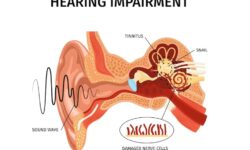Demystifying the Link: How Do NSAIDs Cause Hypertension?

If you’ve ever wondered about the connection between nonsteroidal anti-inflammatory drugs (NSAIDs) and hypertension, you’re not alone. Understanding how NSAIDs can potentially cause or contribute to hypertension is important for individuals using these medications. In this article, we’ll delve into the mechanisms behind this link, explore the risk factors involved, and provide insights into managing hypertension while using NSAIDs.
Unraveling the Mechanisms: How NSAIDs Impact Blood Pressure
NSAIDs are a widely used class of medications known for their pain-relieving and anti-inflammatory properties. However, they can also have an impact on blood pressure regulation, potentially leading to hypertension. Here are a few key mechanisms through which NSAIDs may influence blood pressure levels:
- Renal Effects: NSAIDs can interfere with the normal functioning of the kidneys, specifically by reducing the production of a hormone called prostaglandin. Prostaglandins play a crucial role in maintaining the balance of salt and water in the body, as well as regulating blood flow to the kidneys. When the production of prostaglandins is disrupted, it can lead to sodium and fluid retention, ultimately increasing blood pressure;
- Vasoconstriction: Another way NSAIDs can contribute to hypertension is through their vasoconstrictive effects. These medications can narrow the blood vessels, thereby increasing resistance to blood flow. As a result, the heart has to work harder to pump blood throughout the body, leading to elevated blood pressure levels.
Risk Factors: Who Is at Higher Risk?
While NSAIDs can potentially cause hypertension in anyone, certain individuals may be more susceptible. Here are some common risk factors to consider:
- Pre-existing Hypertension: Individuals who already have hypertension or are at risk of developing it are more likely to experience blood pressure elevation when using NSAIDs. It is essential for these individuals to exercise caution and closely monitor their blood pressure while taking these medications;
- Age and Gender: Older adults, particularly those over the age of 65, may be more vulnerable to the hypertensive effects of NSAIDs. Additionally, some studies suggest that females might have a higher risk compared to males;
- Duration and Dosage: Prolonged use of NSAIDs, especially at higher dosages, can increase the likelihood of developing hypertension. It is important to follow the recommended dosage guidelines and discuss long-term NSAID use with a healthcare professional.
Managing Hypertension While Using NSAIDs
If you rely on NSAIDs for pain management but are concerned about their potential impact on blood pressure, here are some strategies to consider:
- Consult Your Healthcare Provider: Discuss your concerns and medical history with your healthcare provider. They can help evaluate the risks and benefits of NSAID use in your specific case and suggest alternative pain management options if necessary;
- Monitor Blood Pressure: Regularly check your blood pressure while using NSAIDs, especially if you have pre-existing hypertension or other risk factors. This will help identify any changes and allow for timely intervention if needed;
- Consider Alternatives: Explore non-pharmacological pain management strategies, such as physical therapy, acupuncture, or heat/cold therapy. In some cases, your healthcare provider may recommend alternative pain medications that have a lower impact on blood pressure;
- Lifestyle Modifications: Adopting a healthy lifestyle can positively influence blood pressure levels. Focus on maintaining a balanced diet, engaging in regular exercise, managing stress, limiting alcohol consumption, and avoiding tobacco use.
Conclusion
While NSAIDs are valuable medications for pain relief and inflammation reduction, it’s crucial to understand their potential impact on blood pressure. By interfering with renal function and inducing vasoconstriction, NSAIDs can contribute to the development or worsening of hypertension. If you have pre-existing hypertension or are at risk, it is advisable to consult your healthcare provider, closely monitor your blood pressure, and explore alternative pain management strategies when necessary. Remember, an informed approach and proactive management can help safeguard your cardiovascular health while using NSAIDs.








